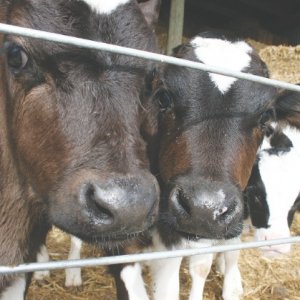The Texas A&M University AgriLife Research and University of Florida report notes most studies analyse the effect of refrigeration or freezing on preservation of immunoglobulins, but the impact of such storage on other immunological factors had been unclear.
“Passive transfer of immunoglobulins is the key element; however, colostrum also is an important source of nutrients, non-specific immune factors and biologically active compounds,” explains AgriLife Research ruminant animal health scientist Pablo Pinedo, one of the report authors.
Pinedo and University of Florida professor Arthur Donovan looked for differences in health in 489 Holstein Friesian calves fed fresh, refrigerated or frozen colostrum from birth. Each calf was monitored for survival, number and length of illnesses, and average daily gain.
“The objective was to assess the performance, health and survival of calves fed fresh colostrum from their dams compared to calves receiving colostrum that was not from their dams and had been treated with potassium sorbate preservative and stored frozen or refrigerated,” says Pinedo.
Preliminary results indicate colostrums origin – fresh maternal versus stored – does not have a significant effect on performance, health and survival.
“This is good news: proper colostrum storage is a very convenient tool in dairy farms and the absence of unfavorable effects on frozen or refrigerated colostrum would be a very good result.”

















